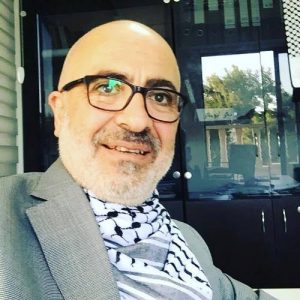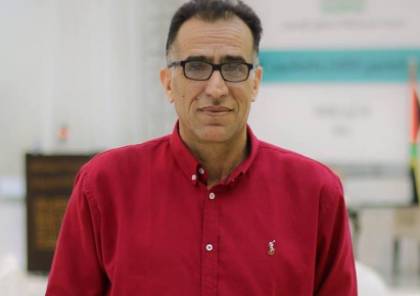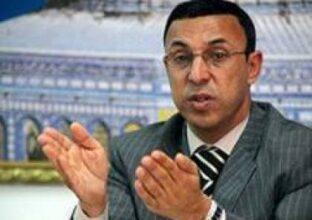The Wisdom of History: Vietnam and Palestine
Al-Khamisa News Network - Gaza

By Bakr Abubakr
The Palestinian resistance began in 1965, following the Nakba (1947-1948) and its massive reverberations across the Arab nation, amid a revolutionary atmosphere among the founding leaders marked by enthusiasm and a desire to act and overcome the stagnation and authoritarian inertia that accompanied the emergence of nation-states in the region. This was reinforced by the dominant call to liberate Palestine (from across Arab parties at the time) and by the victory of the Algerian revolution (1954-1962), which itself benefited from the enthusiastic climate after the major French defeat in 1954 at the Battle of “Dien Bien Phu” in Vietnam and the declaration of independence of Vietnam (North Vietnam) under the leadership of Ho Chi Minh and General Giap. Because both revolutions approached regional changes with awareness and an open mind, each was able to understand the changes of its time, identify points of convergence and divergence, seize the available opportunities and advance to victory.
It is also worth noting that the Vietnamese revolution benefited from the earlier Chinese revolution (1946-1949) and later from Chinese support, especially in the southern liberation war, as an alternative to Soviet support.
Today, in 2025, with the intensified Zionist-American war against Palestine taking the form of ethnic destruction, annihilation, displacement, killing and a new Nakba in Gaza and the West Bank, much water has flowed under the bridge and the Arab situation is no longer what it was in the 1960s and 1970s (the dominant nationalist atmosphere of Gamal Abdel Nasser, the liberation of the nation for Palestine and Soviet support), nor even what followed up to the American war on the Gulf in 1991. The Arab region (with regimes labeled backward or progressive alike) moved from deterioration to worse, especially after the collapse of the socialist camp and the region — then the world — fell under the grip of an aggressive United States. In this context, Egypt fully exited military participation in the liberation of Palestine (with the Camp David accords of 1978-1979). This was followed by the destruction of Iraq after it was exhausted in multiple wars, then by the brutal Zionist destruction of the hope for a political solution: the killing of Rabin and the tearing apart of that prospect (the Oslo Accords) during the Second Intifada (2000-2005), the killing of President Yasser Arafat, and currently the grinding down and annihilation of the Palestinian people (2023-2025), culminating in Israeli occupation of Lebanon and Syria (2025) and the fascist Zionist domination by force over most of the Arab nation in its various forms.
In short, a comparison today (or with 1993, when the Oslo Accords were signed and what followed) cannot be read with a single eye or by cutting-and-pasting the past. A perceptive political analyst sees the scale of changes, forces and camps (with us, against us, neutral) at each stage, which means first understanding the full picture and the scale of what is possible and the available opportunity, and consequently changing realistic objectives (while steadfastly upholding the right, the just cause, the narrative, and belief in sacrifice and inevitable victory, God willing) on the one hand, and changing policies as well as the means and methods that must be used — as the Vietnamese revolution did in its time, and likewise the Algerian revolution.
What the Palestinian revolution, led by the immortal Yasser Arafat, did was to recognize the complete shift and imbalance in the Arab equation when Egypt gradually withdrew (from 1974-1979) from military action entirely. The Palestinian resistance then entered the unavoidable corridor to Palestine and the establishment of the Palestinian National Authority via Oslo. That entry was cautious and extremely exhausting, and the Zionist deception and the global plan to erase Palestine were larger than the revolutionaries’ estimates and capacities, with the opportunity shrinking.
This digression accompanied a desire to broaden understanding and draw lessons on the anniversary of the first Vietnamese victory at the Battle of “Dien Bien Phu” in March 1954, just as the Palestinian Battle of Karama took place in March 1968.
In general, let us recall the conclusions of the Palestinian resistance — the Palestine Liberation Movement, Fatah — in its booklet entitled “The Vietnamese Experience” (published in 1969), which presents the first revolution against the French by General Giap. In the movement’s introduction (pp. 7-10) — under the heading “The integrated concept of Arab revolutionary work for the liberation of Palestine” — it listed the following seven points:
1- Unite all working popular forces into a popular liberation front capable of mobilizing popular energies and committing their full productive capacity to the field of battle, because this in particular spares them side battles and internal conflicts. This is what our movement proposed and continues to propose as necessary: the convergence of all revolutionary Palestinian forces on the battlefield.
2- The existence of a revolutionary popular authority that takes the reins in the occupied area and organizes its relations with the struggling masses and with supply centers abroad. This authority began to take shape in the leadership of our steadfast movement.
3- Create a high tide or sufficient tension to make the spark of revolution effective, able to ignite the whole plain, as Mao Zedong said. This is an extremely difficult process and must not be neglected under any circumstances, because it constitutes a fundamental difference between a successful revolution and a faltering one. Our movement achieved a striking success in the field where the Arab borders with the enemy were heated after the thaw that had accumulated on them melted.
4- Regulating the relationship of the liberation revolution with supporting and other international forces is a very complex process. Regarding the Palestinian cause, the position of the Vietnamese revolution in the South today can help us identify the elements of policy required to organize the revolutionary movement’s relations with other forces — friendly, neutral and external. Our movement is continuously maintaining contacts with all liberation movements and fronts in the world in order to build these supporting forces.
5- Studying the extent to which the success of the Chinese people’s revolution influenced the success of North Vietnam, and the international circumstances surrounding the Vietnamese revolution in the North and the South, can help us form certain assessments regarding the impact of international conditions on the battle to liberate Palestine.
6- Among the topics worthy of study is the territorial base of our armed revolution: is it the occupied land, the West Bank, all of Jordan, neighboring Arab states, or all of these? Studying the Vietnamese experience helps in identifying good answers to these questions.
7- …we can draw a lesson from the steadfastness of the Vietnamese fighters and their high morale… After nine years of bloody struggle they achieved the great victory at “Dien Bien Phu” and thereby liberated the north of the country… today they have again taken up arms and fight with astonishing courage… They are confident of victory, confident that any people in the world, no matter how weak or small, can resist aggressors and defeat them politically and militarily if it is determined to fight, to struggle and to wage the armed popular battle.
Within the framework of the victory at “Dien Bien Phu” and its counterpart in the Battle of Karama in 1968, there are similarities and differences. Imagine the position today when some urge a backward-looking return to history and make comparisons that are irrelevant under different circumstances that cannot be reproduced. History never repeats itself exactly, and even if circumstances may seem similar to the short-sighted, they do not deceive the aware and wise revolutionary who studies history to learn where possible and to preserve certain principles and values, while fully understanding the changes and developments and retaining freedom of decision — all within the steadfastness of right, justice, the narrative, unwavering faith in God, the sacrifice of the fedayeen, the resilience of the people and the prospect of victory.





